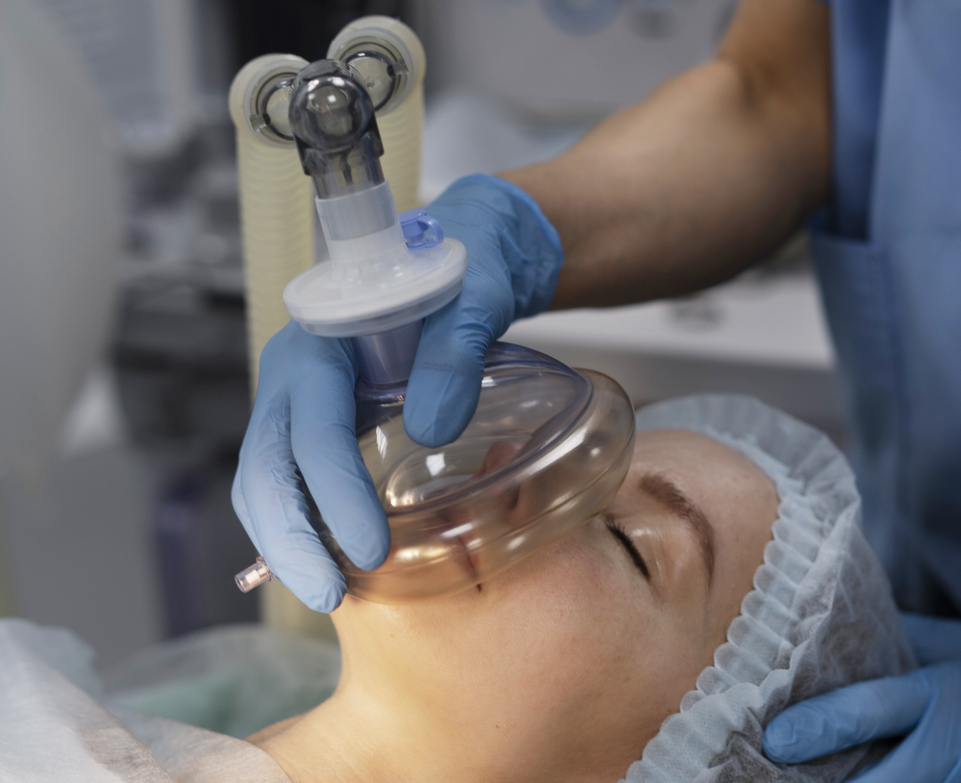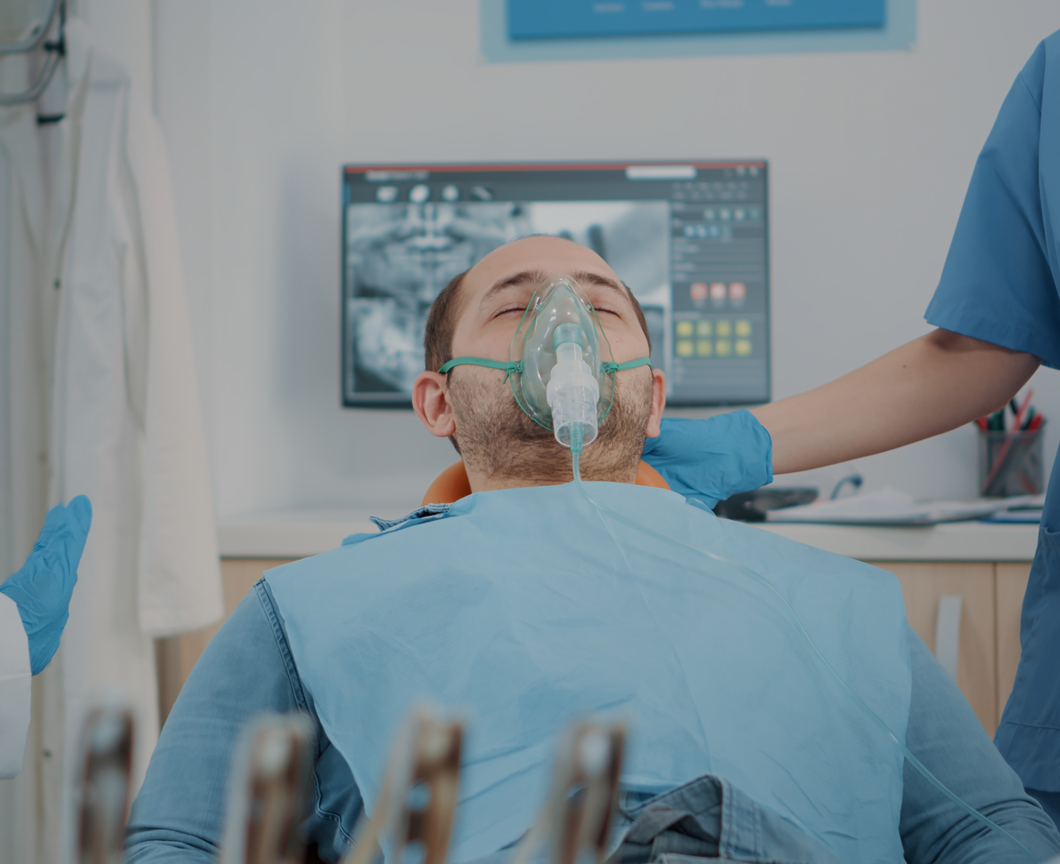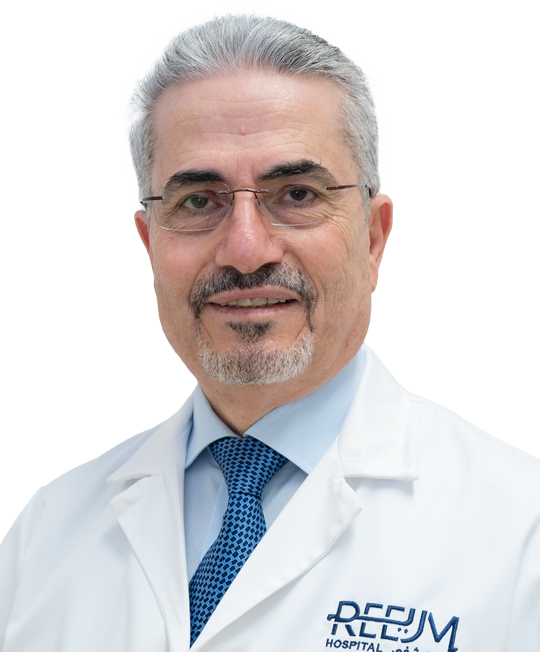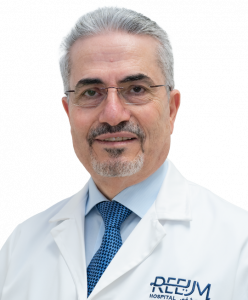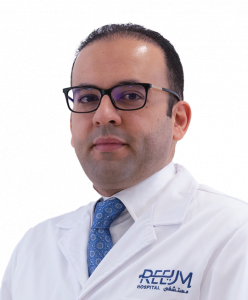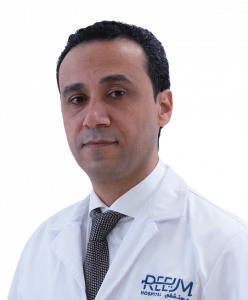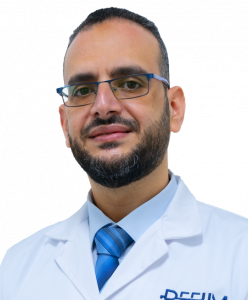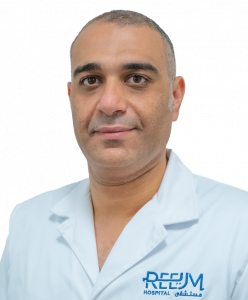Intensive Care Unit (ICU) Hospital in Abu Dhabi, UAE
Timely actions save lives
Book an Appointment
Our ICU at Reem Hospital is a modern unit equipped with state-of-the-art monitors and ultramodern isolation beds, enabling precise monitoring of vital signs and health status. We deliver high-quality care to critically ill patients and those recovering from major surgeries. Our Intensive Care Unit unit is overseen by a multidisciplinary team of specialized, highly skilled intensivists supported by a dedicated medical staff, including nurses, physiotherapists, speech therapists, dieticians, anesthetic technicians, and pain management specialists.
When to Visit an Intensivist or Critical Care Physician?
You are transferred to the ICU only upon the decision of your primary physician.
A critical care doctor, or intensivist, specializes in diagnosing, treating, and supporting critically ill and injured patients, including those with multiple organ dysfunction. They are also proficient in the technological procedures and devices used in intensive care settings.
Book an Appointment
Why Choose the Critical Care Unit at Reem Hospital, Abu Dhabi?
Reem Hospital operates an advanced ventilator unit supervised by a multidisciplinary team, which includes ICU physicians, respiratory therapists, physiotherapists, occupational therapists, speech-language pathologists (SLPs), psychologists, and psychiatrists available 24/7. The unit follows the latest evidence-based treatment protocols, with particular emphasis on our highly successful weaning protocol.
Additionally, Reem Hospital features a state-of-the-art closed ICU unit equipped with cutting-edge equipment, including advanced ICU ventilators and monitors.
Book an Appointment

Treatments Offered by the Intensive Care Unit Department at Reem Hospital, Abu Dhabi
The ICU and ventilator unit at Reem Hospital stand out due to several distinctive factors:
- An expert critical care team rigorously applies international evidence-based protocols daily. They are available 24/7 to ensure the comfort of our patients and are highly trained to manage any urgent conditions that may develop among those admitted to the ICU unit.
- A multidisciplinary team collaborates closely with the critical care team to develop personalized treatment plans for each patient. This team includes ICU physicians, respiratory therapists, physiotherapists, occupational therapists, speech-language pathologists (SLPs), psychologists, and psychiatrists, all available 24/7.
- Comprehensive in-hospital tertiary services support the ventilator unit and ICU, covering a wide range of medical and surgical specialties such as general surgery, neurosurgery, vascular surgery, orthopedic surgery, ENT, ophthalmology, pulmonary care, cardiology, gastroenterology, endocrinology, diabetology, neurology, and psychiatry. This includes:
- In-hospital blood transfusion services.
- A fully equipped in-hospital radiology department providing X-ray, CT, MRI, and ultrasound services.
- Extensive in-hospital laboratory investigations.
- In-hospital hemodialysis services.
- A robust infection prevention and control service ensuring rigorous patient safety measures.
Book an Appointment
Last updated on December 5, 2024
Dr. Rahaf Wagdy is an Egyptian nuclear radiologist and medical content creator who merges her clinical expertise with digital creativity. With over five years of experience in medical content writing in both Arabic and English, she is dedicated to simplifying...
Dr. Nabil Al Khoury heads the department of critical care medicine at Reem Hospital. He has more than 20 years of experience in the field and is experienced in the care of surgical and medical critically ill ventilated patients with...
Meet Our Intensivists / Critical Care Physicians
FREQUENTLY ASKED QUESTIONS
-
What medical conditions or situations warrant admission to the ICU?
Intensive Care Units (ICUs) play a critical role in providing specialized care for patients who require close monitoring and advanced medical interventions:
- Critical Condition:
The ICU is essential for individuals who are seriously ill or have experienced severe multiple traumas.
- Post-Surgery:
After major surgery, particularly involving vital organs, patients benefit from ICU care, which resembles a recovery room with enhanced monitoring and support.
- Serious Illnesses:
Conditions such as heart failure, kidney failure, or strokes may necessitate ICU admission as a sanctuary for recovery.
- Severe Infections and shock:
Infections that severely affect the body, like sepsis, require aggressive treatment.
-
How do healthcare professionals manage pain and discomfort at Reem Hospital’s ICU?
Healthcare professionals assess the severity of pain to determine the appropriate medications. Typically, opioids like morphine are reserved for the highest pain scores. Other pain management methods exist, such as nerve blockade, which works by inhibiting the nerve responsible for sensation of pain.
-
What steps are taken to ensure patient safety in the ICU?
Ensuring patient safety in the ICU at Reem Hospital involves several critical steps:
- Applying Strict Disinfection Protocols: We rigorously adhere to disinfection protocols to prevent infections and maintain a sterile environment crucial for patient recovery.
- Implementing Advanced Monitoring Technologies: Utilizing cutting-edge technologies allows healthcare teams to closely monitor patients. This proactive approach reduces the risk of accidents and ensures timely intervention when patients require assistance.
- Ensuring Proper Medication Management: Safeguarding medication includes proper labeling, storage, and administration practices. Medical staff at Reem Hospital accurately dispenses medications according to prescribed dosages and guidelines, preventing errors and ensuring patients receive the correct treatment.
- Collaborating with Trusted Providers: At Reem Hospital, we collaborate with reputable medical equipment manufacturers and health insurance providers. This collaboration ensures that all equipment and services contribute to patient care and safety, maintaining high standards across the healthcare ecosystem.
 Patient Login
Patient Login
